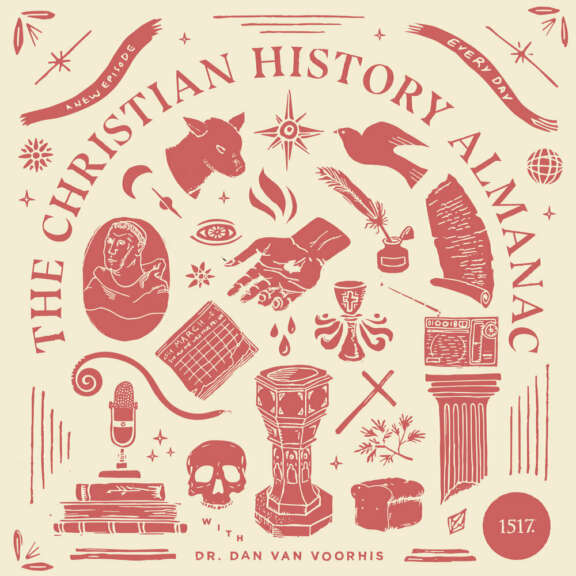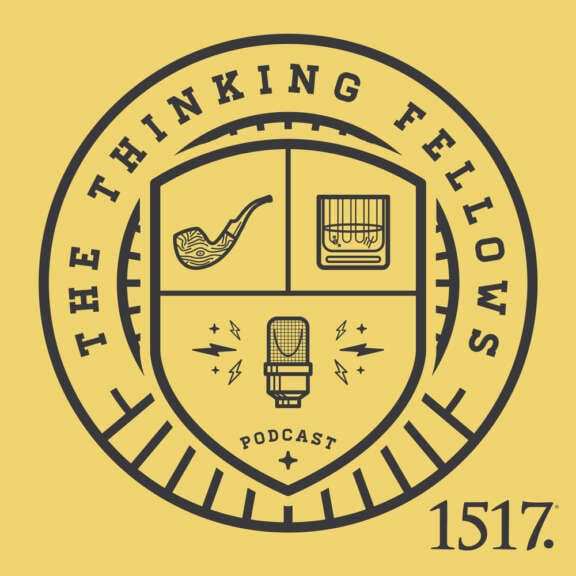On this day in 1833, John Keble busted onto the preaching scene for the first time. And we remember Lily of the Mohawks who was canonized by the Roman Catholic church. Our reading is from John Keble, "Morning Hymn."
Podcasts
Each 1517 Podcast is dedicated to delivering Christ-centered content through weekly, monthly, and seasonal audio platforms. Listen online or on your favorite podcasting app.
Author
- All Authors
- Aaron Zimmerman
- Adam Francisco
- Amy Mantravadi
- Blake Flattley
- Bob Hiller
- Bradley Gray
- Brian W. Thomas
- Bror Erickson
- Bruce Hillman
- Caleb Keith
- Chad Bird
- Chris Rosebrough
- Christopher Gillespie
- Cindy Koch
- Craig Donofrio
- Dan van Voorhis
- Daniel Deen
- Daniel Emery Price
- Darrin Sheek
- David Andersen
- David Rufner
- David Zahl
- Debi Winrich
- Delwyn Campbell
- Donavon Riley
- Doug Klembara
- Edward Killian
- Elyse Fitzpatrick
- Erick Sorensen
- Flame
- Grant Klembara
- Gretchen Ronnevik
- Haroldo Camacho
- Jacob Smith
- Jared C. Wilson
- Jeff Mallinson
- Jeffrey Pulse
- Jessica Thompson
- Jim Nestingen
- Joel Fitzpatrick
- Joel Hess
- John Andrew Schreiner
- John Bombaro
- John T. Pless
- John W. Hoyum
- John Warwick Montgomery
- Katie Koplin
- Kelsi Klembara
- Ken Sundet Jones
- Magnus Persson
- Matt Popovits
- Michael Berg
- Michael Horton
- Nick Lannon
- Paul Koch
- Peter Nafzger
- Philip Bartelt
- Raleigh Sadler
- RJ Grunewald
- Robert Kolb
- Rod Rosenbladt
- Ron Hodel
- Sam Leanza Ortiz
- Sarah Condon
- Sarah Crowder
- Scott Davis
- Scott Keith
- Steven Paulson
- Tanner Olson
- Troy Neujahr
- Uwe Siemon-Netto
- Wade Johnston
- William Cwirla
-
We remember John Dee, an aspiring magician born on this day in 1527. We also remember the vision of Fatima purportedly on this day in 1917. Our reading is "Anthem" by W.H. Auden.
-
Pastor Killian Teaches On John 3:1-17
-
On this day, we remember The Golden Bull of 1356, which is a lot cooler than it sounds, and Thomas Kelly, born on this day in 1769. Our reading is Kelly's "We SIng the Praise of He Who Died."
-
On this day, we remember the Wittenberg Articles of 1536, a failed attempt at a common confession for the churches of the Reformation. Today is also the feast day for St. Gangolf, who died on this day in 760. Our reading is from Charitee Lees Smith, "The Advocate," published in 1863.
-
On this day, we remember the birthday of Sampson Sievers, an icon of 20th century Russian Orthodoxy, and the death of Hebrew scholar Clement Clarke Moore in 1863. Our reading is an excerpt from Gerhard Forde's article "Radical Lutheranism."
-
An enthusiast came in here looking for you — real God and country-type. I don't know. Might further the plot? Gillespie and Riley read and discuss John of Damascus again this week. What’s an enthusiast? Why are footnotes important? How do Aphrodite, Arius, and a Nestorian monk lay the foundation for Islam?
-
Dan talks about the second half of the 20th century and how it has led to the current cloudy question of where Christianity is headed.
-
On this day, we remember the birthday of arch-heretic Nestorius in 386 and the death day of Stephen Langton in 1228. Our reading is "I Greet Thee Who My Sure Redeemer Art" by John Calvin.
-
On this day, "Sinners in the Hands of an Angry God" was first preached by Jonathan Edwards. Today is also the feast of St. Killian, celebrated by Irish and German alike. Our reading is a selection from "Mere Christianity" by C.S. Lewis.
-
Pastor Hodel Teaches On Mark 11:1-10
-
We remember the ecumenical efforts of Athenagoras I, who died on this day in 1972, and the Treaty of Nemours in 1585, which had a less ecumenical result. Our reading is "Recitation" by Cairns.



